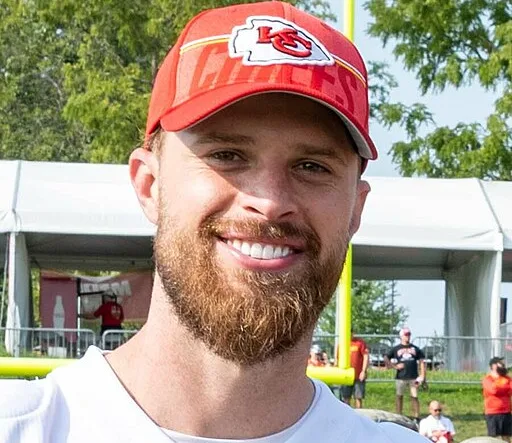The kicker emphasizes the role of leadership and fatherhood in addressing societal violence
Kansas City Chiefs kicker Harrison Butker, reflecting on the tragic shooting at the team’s Super Bowl parade, calls the incident “degenerative violence” and advocates for the pivotal role of fathers and male leadership in curbing societal violence. In an interview with EWTN News’ “In Depth”, Butker discussed the broader implications of the incident, which resulted in the death of Lisa Lopez-Galvan and injuries to nearly two dozen others, emphasizing the need for positive male role models and responsible fatherhood in addressing issues of violence.
Butker, who has won three Super Bowl championships with the Chiefs, stressed the importance of addressing the root causes of violence, pointing to the absence of strong father figures as a critical gap in the social fabric. He argued that the presence of committed and responsible fathers could significantly impact young men’s choices, steering them away from resolving disputes through violence.
Embed from Getty ImagesThe shooting, which led to federal gun charges against three men, has reignited conversations around gun violence and the measures needed to prevent such tragedies. Butker, however, shifts the focus from gun control to the deeper societal issues at play, suggesting that strengthening family structures and promoting positive male leadership could be more effective in preventing future incidents of violence.
The loss of Lopez-Galvan, a fan who was wearing Butker’s jersey at the time of her death, personally affected the kicker. The family’s request for Butker to provide a jersey for her to be laid to rest in, which he honoured, underscores the deep connection and impact athletes can have on their fans. Butker’s reflections on his platform and influence highlight the potential for public figures to advocate for meaningful societal change.
As discussions around violence and gun control continue, Butker’s call for a focus on family leadership and the role of fathers presents a perspective that emphasizes long-term societal shifts over immediate legislative actions. His insights contribute to the broader debate on how communities can come together to address the root causes of violence and foster a more peaceful society.
